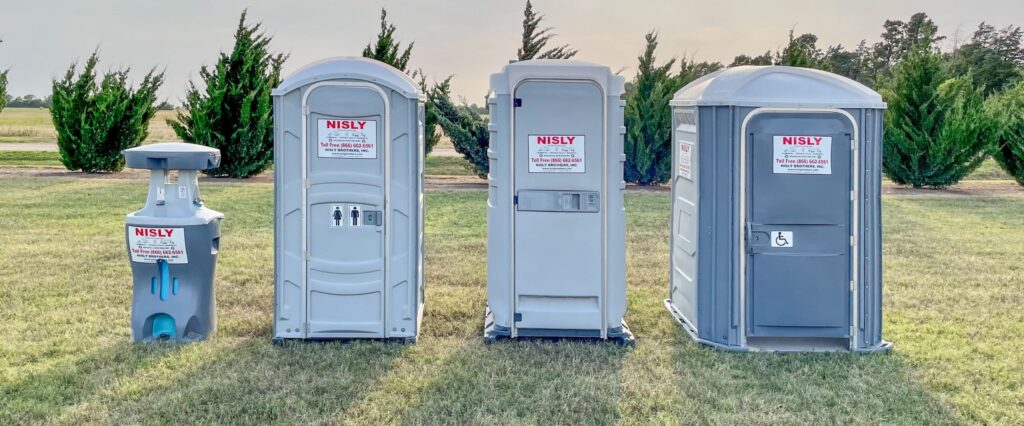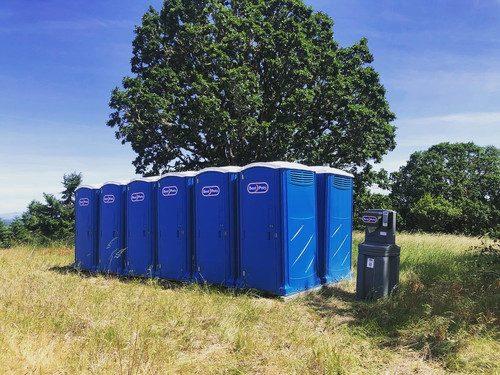Portable toilet distributors play a crucial role in modern sanitation by providing mobile restroom solutions for a wide range of situations. Their services are available for large events, construction sites, emergency response zones, outdoor festivals and more. They are essential in the planning of temporary infrastructure because they handle all aspects from setup and delivery to removal and maintenance. As the demand for off-grid or mobile facilities grows, the industry has evolved to meet increasing expectations in hygiene, efficiency, and environmental responsibility. Their contributions often go unnoticed, yet they are fundamental in maintaining public health and comfort. Many gatherings and work environments could not meet basic sanitation standards without them. Portable toilets are indispensable in all sectors because of their reliability, adaptability, and timeliness.
Distributors offer a wide range of options for portable toilets, which is one reason why they are so popular. Customers can select from single-unit units to handicap accessible models with sinks and flushing toilets. They can also choose high-end restrooms trailers that include lighting, air conditioning, and mirrors. These diverse models allow distributors to cater to different customer needs, whether it’s a rugged construction zone or a high-profile outdoor wedding. Many distributors also offer additional services, such as handwashing stations, urinal units, and portable showers, providing a complete sanitation setup. Clients can manage logistics and budget by customizing the number and type of units according to expected foot traffic and event duration. Distributors consult with their clients directly to determine the site’s conditions, needs for placement, and patterns of usage to make recommendations. The personalized approach to each project ensures that it will be a success and more hygienic.
Operational efficiency is another core strength of portable toilet distributors. The management of the units during delivery, service, and pick-up requires careful logistical coordination and planning. Distributors have fleets and crews that are trained to clean and remove waste during rental periods. Regular servicing includes pumping waste tanks, sanitizing interiors, and replenishing supplies like toilet paper and hand sanitizer. GPS tracking and advanced scheduling systems are used often to reduce downtime and optimize routes. Distribution companies are also responsible for ensuring that waste management regulations and health standards are met. Clients benefit from their knowledge of local regulations, safety requirements and permit requirements. Their ability to react quickly is crucial in time-sensitive scenarios such as emergencies or changes at the last minute.

The focus on hygiene has become more prominent, especially in the wake of the global COVID-19 pandemic. Many clients have shifted their focus from sanitation being an essential to one of the top priorities. This has led to higher standards in terms of service and cleanliness. Distributors have responded by implementing more frequent and thorough cleaning protocols, using hospital-grade disinfectants and touch-free fixtures where possible. To promote good hygiene, some units now have hand-sanitizers, soap dispensers or foot-pump basins. The upgrades were essential to gaining the trust of clients and maintaining satisfaction among users. Training sanitation staff to follow strict hygiene guidelines is also part of a distributor’s commitment to public safety. Cleaning and consistency are now benchmarks when choosing a distributor. This is especially true for large events or populations at risk. Distributors must be vigilant in maintaining their safety and health practices as public awareness about sanitation grows. For more information please Click For Source
The industry is also shaped by the importance of sustainability. Distributors are adopting environmentally friendly practices. They use biodegradable cleaners, offer eco-friendly toilets and even sell units that do not require water. Some models now come with water-saving flush systems, solar-powered fans, or recyclable materials in their construction. Waste disposal is also handled with care, with many distributors partnering with certified treatment facilities to ensure safe and responsible processing. These efforts not only reduce environmental impact but also align with the values of clients who prioritize sustainability. Distributors are using eco-labels and green certifications to attract environmentally aware customers. By investing in cleaner technologies and sustainable operations, distributors are helping to shift the industry toward a more environmentally friendly future. These innovations reflect a broader commitment to doing business responsibly while still delivering essential sanitation services.
In conclusion, portable toilet distributors are an essential part of the sanitation infrastructure that supports countless industries and events. They are vital to both emergency and planned situations because they can deliver high-quality and customizable restroom solutions that adhere to hygienic standards. By offering a wide range of products, efficient operations, enhanced hygiene measures, and eco-conscious practices, they continue to raise the standard in portable sanitation. Although their work is not always visible, it has a profound impact on the cleanliness and comfort they provide to temporary environments. As public expectations rise and technology evolves, portable toilet distributors will remain at the forefront of innovation in sanitation services. Their ongoing contributions ensure that people everywhere–regardless of location or occasion–have access to safe and reliable restroom facilities. With their support, modern life can extend beyond the limits of permanent infrastructure, providing dignity and hygiene in every setting.
